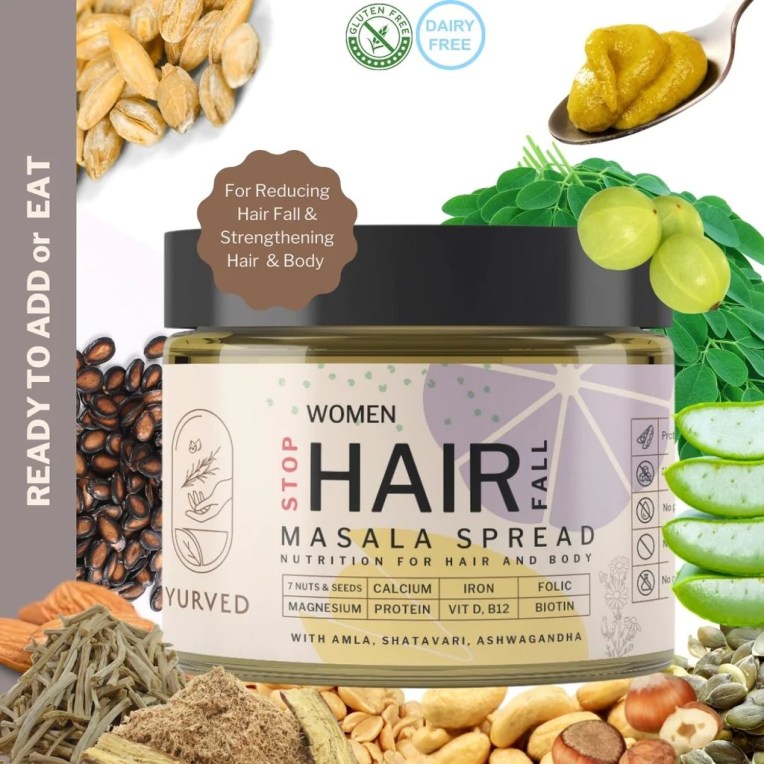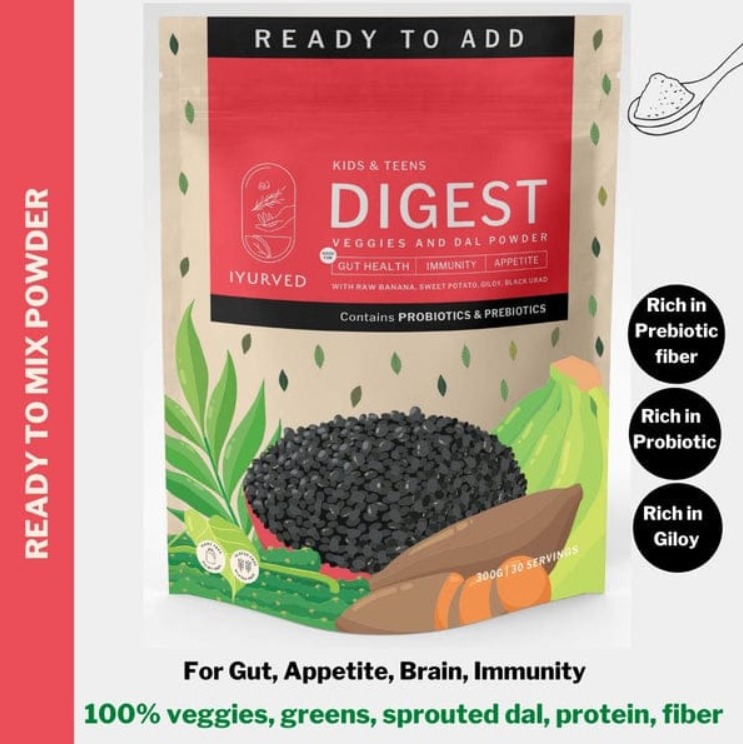Just like your skin, your hair goes through a lot and is often neglected. Are you one of those people who has always wished for long, luscious locks? We understand how difficult it is to care for your hair with your hectic schedules, but oiling your hair three times a week will help. Hair, like the rest of the body, requires proper nutrition. While you can obviously make dietary changes to nourish your hair from the inside out, you cannot ignore oiling. Hair is composed of three layers, the outermost of which produces natural oils and serves to protect the hair. Aside from that, it makes hair shiny and healthy. When this layer wears away, the hair becomes dry and dull. Oil treatments for hair may help hydrate the strands and the scalp. Let’s learn more about the benefits, tips on fast hair growth and types of hair oils that are actually good for your hair.
WHATSAPP for concerns like Speech Delay, Low Weight, Frequent Illness, Hyperactivity, Low Concentration, Weak Eyesight, Improper Sleep, Pigmentation, Pores, Face Marks, Fine Lines , Lactation etc.
Benefits of hair oiling:
- Protect hair from wear and tear
- Maintains scalp health
- Makes hair look healthy
- Maintains shines, gloss and smoothness
- Strengthen roots
- Boost hair growth
- Reduce split ends
- Prevents dandruff
- Maintains hair hydration
- Provides protection against vitamin and mineral stripping during hair wash
- Stress relief
How to apply hair oil properly?
According to Ayurveda, oiling your hair should be part of your daily routine, but this is not realistic. If this isn’t possible for you, at the very least, oil your hair twice a week. This is the one of the biggest tips on fast hair growth. Applying oil to your hair the night before washing it is ideal, but if this is not possible for you, you can oil your hair an hour before bathing. You can try these steps for proper oiling:
- Apply oil on the scalp and massage with fingertips.
- Rub oil on the palm and apply it to the strands as well
- Cover properly with towel and keep it overnight
- Wash normal, dry well and apply a small amount of coconut oil (or mixture of oils) as natural conditions.
9 best hair oil for hair nourishment:
1.Coconut Oil:
This is one of the most popular oils, easily available, anciently and widely used around the globe. Apart from being beneficial for skin, coconut oil works great for all hair types. This oil is rich in vitamins, antioxidants and essential fatty acids (mainly lauric acid). This penetrates deep into hair follicles without evaporating. It has a wide range of benefits right from reducing protein loss from hair, conditioning, protection against heat, repairs hair and keeps hair soft and healthy.
2. Olive Oil:
This oil is extremely versatile in nature, as it is used for all three purposes, namely food, skin, and hair. Olive oil is high in vitamin E and omega-3 fatty acids, and it has excellent emollient and protective properties. This oil is suitable for all hair types and makes the hair super soft. Furthermore, it aids in the retention of moisture in the hair, protects keratin, combats dandruff, and conditions the hair. Scalp revitalization, nourishment, and hair growth are all added advantages.
3. Almond oil:
It is high in vitamin E, magnesium, vitamin B7, antioxidants, and proteins, which promote hair growth, seal moisture, reduce oxidative stress, strengthen hair, prevent breakage, soften hair, and make hair lustrous. Isn’t that a lot? Almond oil can be consumed as well as applied topically.
4. Castor oil:
This is a viscous, thick oil that works wonders on your hair. Apart from vitamin E, protein, and minerals, castor oil contains ricinoleic acid, which helps to improve hair follicles and increase blood circulation. This, in turn, promotes hair growth. Another advantage is that it aids in the removal of dandruff and scalp inflammation. One of the tips on fast hair growth while using castor oil is massaging well in circular motion.
5. Onion oil:
This oil may smell foul when applied to hair, but you will enjoy the benefits at the end! Onion oil is rich in sulphur and sulphur containing compounds that are responsible for hair regrowth, prevents breakage, reduces hair thinning and split ends. In addition, it will also allow your hair to shine and be healthy by nourishing your scalp. Moreover, onion oil acts as a natural conditioner that prevents and controls frizz.
6. Argan oil:
Argan oil, like other oils, is high in vitamin E, antioxidants, vitamin A, vitamin C, vitamin E, and omega 3 fatty acids. It is extracted from the nuts of the argan tree. So, what else do you require for your hair to be healthy? Argan oil, also known as ‘liquid gold’ due to its colour, is minimally processed and thus can promote hair growth. Moreover, it aids in the replenishment of nutrients to the hair, the treatment of split ends, the repair of hair damage, and the maintenance of hair hydration.
7. Sesame oil:
This sesame seed oil is high in vitamin B1, calcium, magnesium, iron, copper, vitamin E, phosphorus, manganese, and zinc. It conditions the scalp deeply, smoothes hair, promotes hair growth, reduces frizz, and prevents dandruff.
8.Brahmi oil:
This ayurvedic hair oil rejuvenates hair follicles and strengthens them from roots. Thus, reducing hair fall and promoting thicker hair. Brahmi oil has cooling properties that helps in getting rid of dandruff and also works and stress relief. This, in addition, works well for dry and itchy scalp.
9. Tea tree:
This oil should not be applied to the hair directly. Always combine this with a carrier oil. Tea tree oil has antibacterial and antimicrobial properties that aid in hair follicle cleaning. To be more specific, it aids in the unclogging of follicles and the prevention of chemical or dead skin buildup. Overall, this promotes hair growth, reduces hair loss, and keeps lice at bay.
PRODUCTS:
It’s no SECRET that following an Ayurvedic lifestyle has numerous advantages. This unique collection of Ayurvedic spreads is an easy solution to feed daily nutrition for Immunity, Eye, Brain development, Bone strength and overall growth to kids without any fuss. To know more about kid’s ayurvedic foods –SHOP HERE.

India’s First Tasty Kids Nutrition fortified with Ayurvedic herbs.
To stop Hair Fall & Strengthen Hair & Body, give Women Stop Hair Fall Masala Spread | 0% Preservatives | 0% Refined Sugar | 0% Palm oil | With SHATAVARI, ASHWAGANDHA, AMLA, MORINGA, ALOE VERA | ORDER |
Immunity, Gut health, Digestion, Weight, Brain development, Speech delay, Epilepsy, Eye health, Hormones, Sleep, Hyperactivity, Bones and Overall growth























